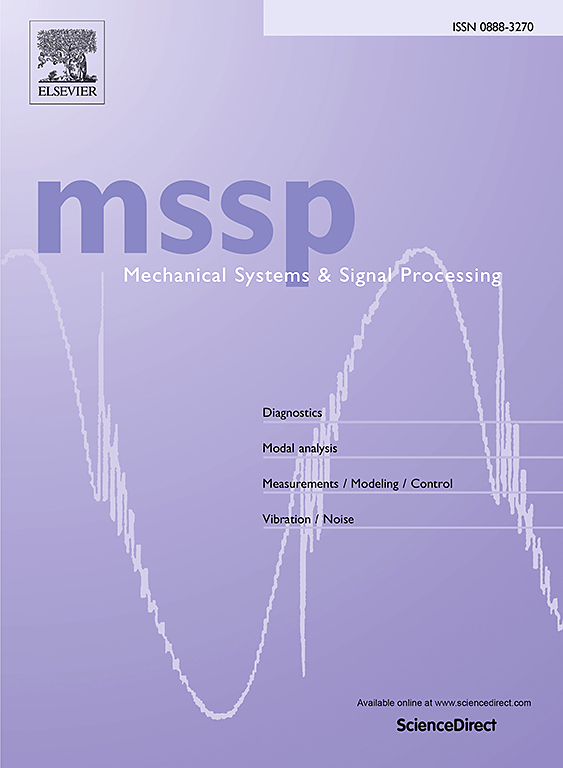DiffectNet: diffusion-enabled conditional target generation of internal defects in ultrasonic non-destructive testing
IF 8.9
1区 工程技术
Q1 ENGINEERING, MECHANICAL
引用次数: 0
Abstract
Ultrasonic testing has been widely adopted as a non-destructive evalua- tion technique for detecting defect-related anomalies across various indus- trial fields. While several previous deep learning-based studies have shown promising results in addressing the inherent limitations of ultrasonic non- destructive testing, a critical challenge remains in acquiring diverse and large- scale datasets, hindering both detection performance and generalization. In this study, we propose a deep learning approach to generate synthetic defect cases tailored to phased array ultrasonic testing (PAUT) systems. Specifi- cally, we introduce a DiffectNet, a diffusion-enabled conditional target gen- eration network that can produce high-fidelity and defect-aware ultrasonic images. Both qualitative and quantitative evaluations demonstrate the su- perior generative performance of the proposed approach compared to exist- ing methods, achieving a 77% improvement in Fŕechet inception distance, a 98% improvement in kernel inception distance, and a 26% improvement learned perceptual image patch similarity error, respectively. Furthermore, we highlight the potential advantage of our approach as a neural augmenta- tion method, which can enhance model performance and generalizability for unseen defect scenarios. This study offers a promising solution to the practical challenge of limited data availability and further contributes to advancing data-driven ultrasonic non-destructive testing methods.
DiffectNet:超声无损检测中内部缺陷的扩散使能条件目标生成
超声检测作为一种无损检测技术已被广泛应用于各种工业领域中与缺陷相关的异常检测。虽然之前的一些基于深度学习的研究在解决超声波无损检测的固有局限性方面显示出有希望的结果,但在获取多样化和大规模数据集方面仍然存在一个关键挑战,这阻碍了检测性能和泛化。在这项研究中,我们提出了一种深度学习方法来生成针对相控阵超声检测系统的综合缺陷案例。具体来说,我们介绍了一个DiffectNet,这是一个扩散激活的条件目标生成网络,可以产生高保真度和缺陷感知超声图像。定性和定量评估都表明,与现有方法相比,所提出的方法具有优越的生成性能,Fŕechet初始距离提高77%,内核初始距离提高98%,学习感知图像补丁相似误差提高26%。此外,我们强调了我们的方法作为一种神经增强方法的潜在优势,它可以提高模型的性能和对未见缺陷场景的泛化性。该研究为数据可用性有限的实际挑战提供了一个有希望的解决方案,并进一步促进了数据驱动的超声无损检测方法的发展。
本文章由计算机程序翻译,如有差异,请以英文原文为准。
求助全文
约1分钟内获得全文
求助全文
来源期刊

Mechanical Systems and Signal Processing
工程技术-工程:机械
CiteScore
14.80
自引率
13.10%
发文量
1183
审稿时长
5.4 months
期刊介绍:
Journal Name: Mechanical Systems and Signal Processing (MSSP)
Interdisciplinary Focus:
Mechanical, Aerospace, and Civil Engineering
Purpose:Reporting scientific advancements of the highest quality
Arising from new techniques in sensing, instrumentation, signal processing, modelling, and control of dynamic systems
 求助内容:
求助内容: 应助结果提醒方式:
应助结果提醒方式:


